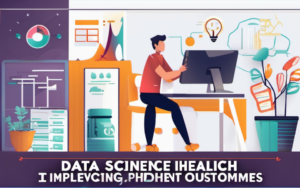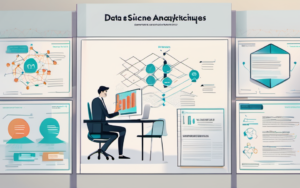The power of Data Science lies in its ability to extract meaningful insights from vast amounts of information, revealing patterns and trends that can shape our understanding of the world. But beyond its analytical capabilities, Data Science has the potential to be a powerful force for good, driving positive change and creating a more equitable society for all.
The Promise of Data Science for Equity
Unveiling Hidden Biases
Data Science can act as a powerful tool for identifying and addressing systemic biases embedded within our institutions and systems. By analyzing large datasets, Data Scientists can uncover patterns of inequality that might otherwise go unnoticed. This allows us to understand the root causes of disparities and develop targeted interventions to address them. For example, analyzing data on loan applications can reveal discriminatory lending practices that disproportionately affect certain groups, prompting policy changes to ensure fair access to financial resources.
Empowering Marginalized Communities
Data Science can empower marginalized communities by providing them with tools and resources to advocate for their needs and improve their well-being. By collecting and analyzing data on community-specific issues, Data Scientists can help to identify solutions and inform policy decisions that directly impact these communities. This could involve using data to track the prevalence of environmental hazards in low-income neighborhoods or analyzing health data to understand the specific challenges faced by certain ethnic groups.
Optimizing Resource Allocation
Data Science can help to ensure that resources are allocated fairly and effectively by providing evidence-based insights into where they are needed most. By analyzing data on social service utilization, healthcare access, or educational outcomes, Data Scientists can identify areas where resources are scarce or being used inefficiently. This information can then be used to guide policy decisions and allocate resources in a way that maximizes their impact and reduces disparities.
Challenges and Considerations
Data Bias and Its Impact
One of the key challenges in using Data Science for social good is the inherent risk of data bias. The data we collect and analyze often reflects existing societal biases, which can be amplified and perpetuated by Data Science algorithms if not properly addressed. For example, algorithms used in hiring processes might inadvertently discriminate against certain demographic groups if they are trained on biased data.
Ethical Considerations in Data Collection and Analysis
The ethical implications of Data Science are crucial to consider, especially when working with sensitive data that could potentially be used to harm individuals or communities. This includes issues like privacy, consent, data security, and the responsible use of AI. It’s essential to develop ethical guidelines and frameworks to ensure that Data Science is used for good and doesn’t perpetuate existing inequalities.
The Role of Diversity in Data Science Teams
To address the challenges of data bias and ensure equitable outcomes, it’s crucial to have diverse teams of Data Scientists representing a wide range of perspectives, experiences, and backgrounds. This diversity will help to ensure that data is collected and analyzed in a way that is sensitive to the needs and experiences of different communities.
Case Studies: Data Science in Action
Healthcare: Improving Access and Outcomes
Data Science is being used to improve healthcare access and outcomes for underserved communities. For example, AI-powered tools are being developed to diagnose diseases more accurately, predict health risks, and optimize treatment plans. Data analysis can also help to identify areas with limited access to healthcare and allocate resources accordingly.
Education: Personalizing Learning Experiences
Data Science is transforming the education landscape by enabling personalized learning experiences. By analyzing student data, educators can tailor educational programs to individual learning styles and needs, leading to improved student engagement and achievement. This is particularly impactful for students from marginalized backgrounds who may face additional challenges in the education system.
Criminal Justice: Reducing Bias and Promoting Fairness
Data Science is being used to address systemic bias in the criminal justice system and promote fairness. For example, algorithms are being developed to predict recidivism rates more accurately, reducing the risk of biased decision-making in sentencing and parole. Data analysis can also be used to identify disparities in policing practices and address them through policy reforms.
Moving Forward: Building a More Equitable Future
Promoting Data Literacy and Critical Thinking
To ensure that Data Science is used for good, it’s crucial to promote data literacy and critical thinking skills among the general public. This will empower individuals to understand how data is collected, analyzed, and used, and to critically evaluate the information they encounter.
Developing Ethical Guidelines for Data Science
Developing clear ethical guidelines and frameworks for Data Science is essential to ensure that it is used responsibly and ethically. These guidelines should address issues like data privacy, consent, bias mitigation, and the potential for harm.
Investing in Diverse Talent and Inclusive Practices
Investing in diverse talent and fostering inclusive practices within the Data Science field is crucial to ensure that the benefits of Data Science reach all members of society. This involves supporting underrepresented groups in pursuing careers in Data Science and creating inclusive work environments where diverse perspectives are valued and respected.
The Potential and Responsibility of Data Science
Data Science holds immense potential to transform society for the better, but it’s crucial to approach this technology with a strong sense of responsibility and ethical awareness. By addressing the challenges of data bias, promoting data literacy, and investing in diverse talent, we can harness the power of Data Science to create a more equitable and just world for all.




